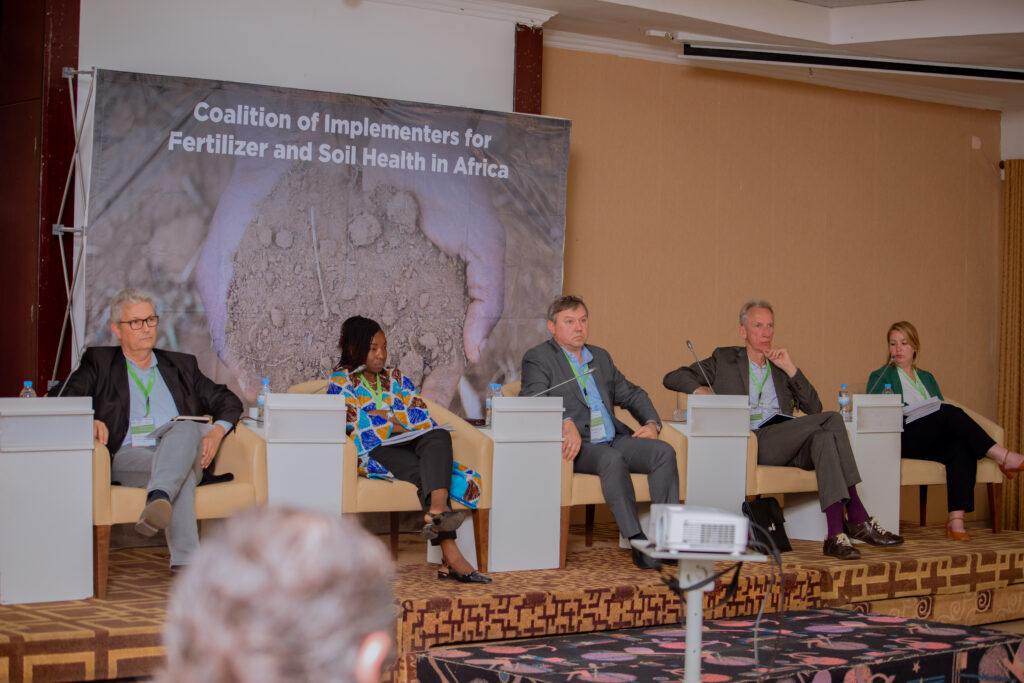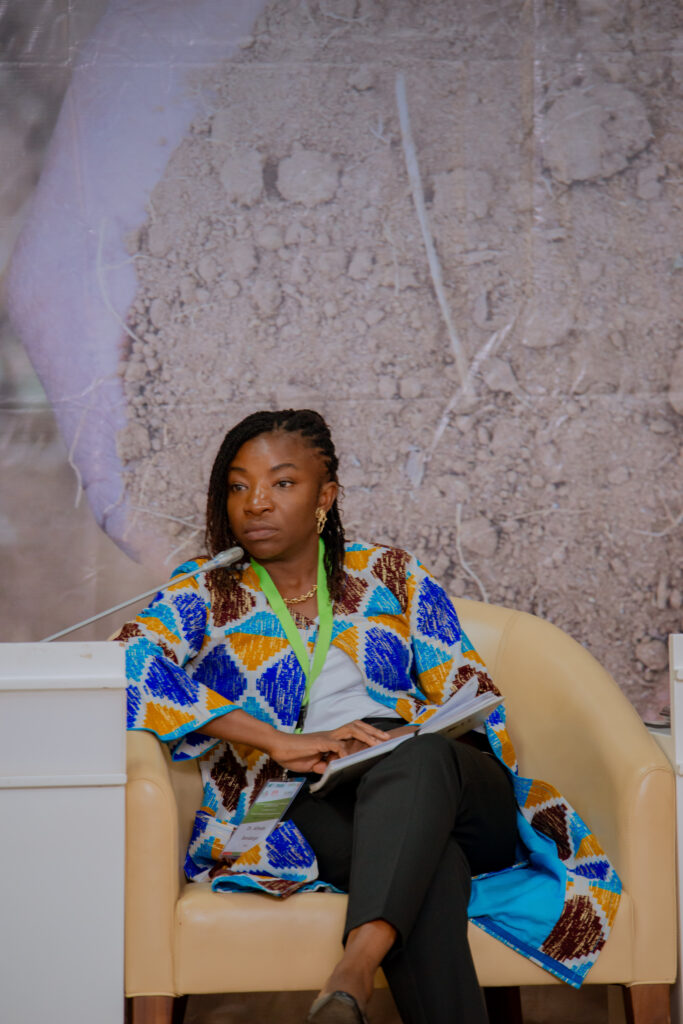
The Soil Values program, funded by the Netherlands Directorate-General for International Cooperation (DGIS), actively participated in the Africa Food Systems (AFS) Forum, held in Kigali, Rwanda, on September 2-6, 2024. This major agricultural event was organized by AGRA, a Soil Values knowledge partner. As a key participant in the event, Soil Values joined forces with other agricultural experts to discuss the Africa Fertilizer and Soil Health (AFSH) Action Plan and the Soil Initiative for Africa (SIA).
Implementing the AFSH Action Plan to improve soil health is essential for Africa’s food security and must benefit from investments from not only the private sector, but also the public sector.
The forum highlighted the urgent need to invest in soil health to ensure food security and support the resilience of small-scale farmers in Africa. To guarantee these needs are met, it is imperative that all actors in the agriculture sector invest in actions to improve soil health and fertility through the facilitation of agricultural policies and inclusive financial support. Soil Values played an important role in driving this conversation forward at the Forum.
The AFS Forum brought together agricultural technicians, policymakers, investors, and non-governmental organizations to advance sustainable agricultural practices, investment strategies, and women’s leadership in African food systems.
At this year’s event, in various round tables, workshops, and side events, these partners debated issues related to seed and fertilizer sector reform, private sector investment in nutrition, agricultural mechanization, and soil health. Soil Values participated in two of these sessions that highlighted practical next steps in the implementation of the AFSH Action Plan and the SIA.
First, following the success of the AFSH Summit in May 2024, Soil Values took part in the post-AFSH Round Table on the implementation of the AFSH Action Plan and the SIA, a side event organized by the Coalition of Implementors for Fertilizer and Soil Health (CIFSH), which includes the International Fertilizer Development Center (IFDC), African Plant Nutrition Institute (APNI), Forum for Agricultural Research in Africa (FARA), the International Institute of Tropical Agriculture (IITA), AGRA, and the Joint Development Statement Partners.
The Action Plan aims to strengthen the resilience of small-scale farmers, food security, and agricultural systems in the context of climate shifts. It also seeks to increase agricultural yields and promote the use of quality agricultural inputs adapted to local production systems.

At the Round Table, attended by over 100 agriculture sector stakeholders, Soil Values Technical Deputy Director Dr. Alimata Bandaogo stressed the importance of knowing the status of soils to guide specific fertilization practices for efficient soil and crop productivity.
“We also need to understand agricultural land management practices and vulnerability to erosion. We should work to integrate climate information and services into agriculture and analyze agrodealers as well as the market to develop effective national action plans on agricultural inputs and soil health.”
Dr. alimata bandaogo, soil values technical deputy director
The support of political decision-makers remains necessary for the implementation of the AFSH Action Plan and the SIA. They can improve the environment for inclusive agricultural policies by improving, for example, strict land tenure policies, which tend to hinder the adoption of good land management practices. Policy-makers can also help by integrating plans to combat land degradation into agricultural policies and implementing national programs and strategies.
Major actors in the private sector – including seed companies, blenders, fertilizer industries, agrifood processors, banks, and others – have the potential to make substantial investments in strengthening soil health and fertility in Africa. Such investment was discussed during the second event in which Soil Values participated at the AFS Forum: the Mobilizing Investments for Equitable, Sustainable, and Nutritious Food Systems in Africa panel, featuring Soil Values Senior Technical Advisor Dr. Prem Bindraban. Private sector investment could strengthen the production capacity of small-scale agricultural producers, improve value chains, and support market development to support food security and nutrition in Africa.
Implementing the AFSH Action Plan to improve soil health is essential for Africa’s food security and must benefit from investments from not only the private sector but also the public sector. The discussions and commitments made at the AFS Forum remain important for implementing the action plan and achieving Africa’s food security goals.
According to a December 2022 publication from the Food and Agriculture Organization of the United Nations (FAO), soil not only provides 95% of the food we eat, but it also plays a fundamental role in the earth’s ecosystem processes. Small-scale farmers in the Sahel would be able to improve their production thanks to healthy, fertile soils. Such soils depend on sustainable farming practices, promoted by agricultural development organizations, which implement projects or programs aimed at preserving agricultural land in Africa.
As such a program, Soil Values incorporates the integrated soil fertility management (ISFM) approach into the context of participatory landscape management. Soil Values aims to improve soil fertility and the production capacity of 2 million hectares of farmland in the Sahel, promoting the resilience and well-being of 1.5 million farmers, with a particular focus on women and young people. As it moves forward, the Soil Values program remains committed to working with partners across Africa to improve soil health and fertility and encourage a more resilient agriculture sector in the Sahel.
Funded by the Dutch Directorate-General for International Cooperation (DGIS), the Soil Values program is being implemented over 10 years (2024-2034), led by IFDC in collaboration with core partners SNV and Wageningen University and Research (WUR), as well as various knowledge partners, such as AGRA, the Center for International Forestry Research and World Agroforestry (CIFOR-ICRAF), the International Institute of Tropical Agriculture (IITA), the International Soil Reference and Information Center (ISRIC) and the International Water Management Institute (IWMI).




